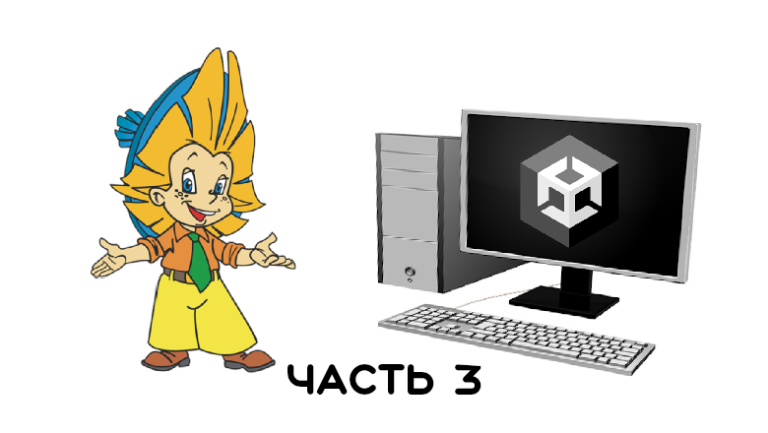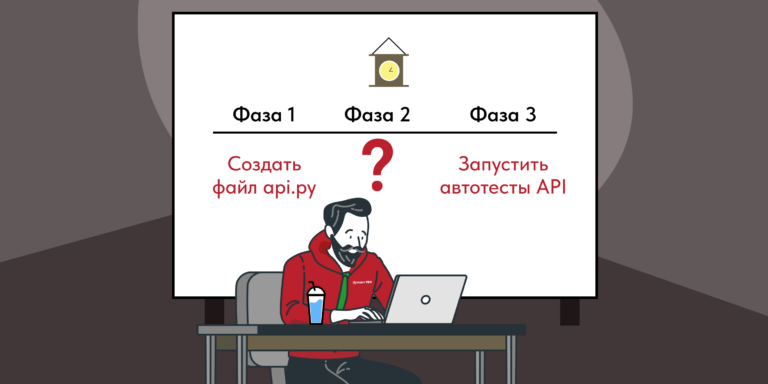How to quickly and effectively burn out at work: the experience of a survivor

Hello! My name is Tatyana Belova and I am the author of a new DIY media VITI from beeline cloud. I run the client consulting and training department, and this is the very people-to-people area where employees burn out very quickly. I once struggled with professional burnout: everything went very far, and I almost quit, but I managed.
You've probably heard something about professional burnout or even experienced it. According to research hh, in the IT field, 78% of people have personally experienced burnout. This is a very high figure. Burnout worsens the quality of our life, makes work uninteresting, and tasks that previously brought pleasure and drive become a burden. There is good news: you can fight burnout and even prevent it from happening. I’ll tell you what you need for this in this article.
What is professional burnout and why should you even know about it?
In the 50s of the last century, doctors discovered an unknown viral infection, due to which people began to work worse, and their psychological and physical health declined. An interesting fact later emerged: the new virus mainly affected those who worked with people, such as teachers, managers, consultants, and affected less, say, workers. This interested psychologists and psychiatrists, and in 1974 Herbert Freudenberger published the article Staff burnout. This is how this term appeared.
What is professional burnout and why should you even know about it? Essentially, burnout is a defensive psychological reaction to stressful or traumatic events. Its meaning is that a person stops reacting emotionally to what might hurt him. Gradually, motivation is lost and physical exhaustion sets in. You may feel that not only do you not want to go to work, but it is also physically difficult to do so. When I was experiencing burnout, every morning on the way to work I felt that today I would definitely die from a heart attack, and my shortness of breath could be the envy of any sumo wrestler.
Since 2022, WHO has included burnout in ICD-11, recognizing it as a factor affecting people's health. Burnout is seen here as a syndrome of chronic stress at work that has not been managed.
Let's find out what a person with burnout syndrome feels.

First, emotional emptiness appears – a feeling of exhaustion, doom. Often burned out people experience apathy and powerlessness; they no longer believe that their resources will be restored, and the coming Monday seems like an insurmountable evil.
Then depersonalization comes into play – self-defense from emotional devastation. It manifests itself in a cynical attitude towards one’s own work, its results, clients and colleagues.
And finally, a person begins to feel his own incompetence, unproductivity, and sometimes simply devalues his work. The feeling of inability to cope with work tasks “as it should” leads to even greater emotional emptiness.
If burnout is not taken seriously enough, it can develop into depression, which is no longer possible to cope with on your own. None of us really need this, so let's figure out where burnout comes from and what factors in your life you should pay attention to.
What leads to professional burnout
Scientists have conducted research and identified factors that directly affect burnout. Some of them, for example, gender, age, work experience, are quite difficult to do something about. But many can be changed on your own, and this is good news.
Factors influencing professional burnout are divided into two groups:
Individual are the personal characteristics of a person: gender, age, endurance, education.
Organizational – those that depend on the organization of work, on the relationship between employer and employee: working conditions, length of the working day, number of clients (customers), etc.
Burnout may be age-related, but younger generations are also susceptible to it. If you have just graduated from university and got a job, you may be faced with the fact that the reality is not at all what the teachers told you, and your own competencies are not enough. That’s why we now see around young people who have worked for about six months and are already burnt out. Yes, this also happens, you don’t have to work in the same organization for ten years to get tired.
The connection between burnout and gender is interesting. Women cope with stress better than men, so they are less likely to burn out. In addition, both men and women experience more stress if they are required to perform stereotypically “male” or “female” jobs. But it seems that now we can see changes in people's thinking, and this factor no longer has such an acute impact.
There is also a fun fact: people who have never been married or in a marriage-like relationship are more prone to burnout, especially men.
But perhaps the most important factor here is a burnout resistance strategy. People who actively counteract stress are less likely to experience its consequences.
Among organizational factors, overtime work plays a significant role, as well as increased workloads and an increase in the number of tasks. In these cases, you can go on vacation or take a couple of days off to rest and recover, but when you return to work and resume your previous tasks, the full range of feelings caused by burnout will return to you.
Relationships in the team, interaction on work issues, and constructive feedback from the manager and colleagues also play an important role.
It is not always possible to influence individual factors, but it is still possible. For example, you can reduce your own anxiety, work on self-esteem, and find ways to recover after work.
But organizational factors can always be changed. To do this, you don’t have to change your job—a dialogue with your manager and your own ability to organize your workday are often enough.

How to understand that you have the right one: stages of burnout development
It is now believed that professional burnout cannot be completely avoided. But even if you've collected a bingo of factors in the previous section, that doesn't mean you'll necessarily experience the effects of burnout. A person is not like a lit match: it takes quite a long time to burn out to the end, during which he goes through six stages of burnout. You can always check and understand what stage you are at now and what exactly to do about it.

Paradox: those who are very highly motivated and involved in tasks from the very beginning burn out and lose interest in work and life faster than others. When you are so inspired, you want to devote as much time as possible to interesting work. But this is precisely where the danger lies: you begin to involuntarily overwork, you are unable to switch from work to rest (an interesting task), you can spend your free time on work. Gradually, the lack of rest affects you, you begin to feel worse, and one day you suddenly notice that work has taken all your strength and you don’t want to do it anymore, and you can’t do it the way you used to.
At the same time, it is in the initial stages of burnout that you can still turn back the clock on your own and cope with the syndrome without great loss and effort. Therefore, it is important to keep track of where exactly you are now, whether it’s time to go to the gym or just be lazy at home.
Special questionnaires can help with this. There are several tests to check for burnout. I wish you to score as few points as possible in them.
Okay Google, I'm burned out. What's next?
So, you read the article to this section, took the tests and found out that you have burnout. And if you haven’t experienced burnout yet, I offer a checklist. My colleagues and I tested it in practice, it works flawlessly. If you act strictly according to the checklist, you can easily and quickly earn yourself a burnout and move on to the next section.

How to earn burnout is more or less clear. Most often, having coped with this task, people begin to look for ways to combat burnout, sometimes unconsciously. Each of us used one or another technique, some of which really helped. Let's figure out together which strategies for preventing and combating burnout work and which don't.
Strategies for dealing with burnout that don't work
Intuitively, every person strives to improve their life. But sometimes we use ways to do this that only make things worse. What strategies don't work in the long term?
Since burnout starts with fatigue, it's natural that we want to cheer ourselves up. We drink more coffee and sometimes alcohol, people who smoke take smoke breaks more often, we try to sleep off the entire week on weekends, and as fatigue accumulates, we cut off what takes away our strength: hobbies, unimportant personal matters, social connections. All this contributes to even greater fatigue and emotional emptiness, and we are drawn into the funnel of burnout.
Since we are strong and successful people, or want to appear so, we are afraid of seeming not good enough, we try to work with the same efficiency as before, we agree to new tasks and projects and blame ourselves for missing deadlines and not having the same high quality of work as before.
Limiting communication with friends and family also leaves its mark: we are left without support, and “pickup” in this situation most likely will not work.
Strategies that work to combat burnout
How to act correctly if you find the first signs of burnout? The main thing is not to ignore them and remember: lack of sleep cannot be compensated for by coffee, and you won’t be able to get enough sleep on the weekend, and stress cannot be relieved with a pint of beer and a cigarette.
First of all, it is important to improve sleep and nutrition. It is advisable to go to bed and wake up at the same time, use thick curtains, and sleep enough time. It’s better to eat regularly and at least relatively balanced. It seems that these tips can be heard from everywhere, but let’s admit: we don’t always follow them, although it has long been proven that a relatively healthy lifestyle has a beneficial effect not only on the psyche, but also on the body as a whole. These recommendations really work, but they are so difficult to follow in our busy lives.
In addition to sleep and nutrition, it is important to rest. This means going on vacation regularly, taking midweek breaks, planning weekends. It is important to remember that rest is the opposite of work. That is, if you work on a laptop all day, then there is nothing you can do – after work you will have to take a walk. For me, planning and relaxing was the most difficult thing. It always seemed to me that since I was working ineffectively, that meant I had to work until I completed the task. One day I came to work on Friday and left on Saturday – I could afford it. Therefore, the solution for me was to plan personal matters on the calendar along with work ones. Willy-nilly, I had to go to the concert, since it was included in the schedule.
Sports play an important role in combating stress. You can practice Muay Thai, walk on a treadmill, ride a bike, or just walk a few kilometers in the park. No matter what you do, physical activity is important. But you will definitely do it if you like the sport. I always hated gyms and thought that sports were not for me until a few years ago when I learned to ride a bike. I love it so much that I become happy as soon as I get on the bike and start riding. It is important to find something that will bring you pleasure and not pain, then you will acquire both physical activity and a cool hobby.
It is necessary to take care not only of physical health, but also of mental health. Take an information detox over the weekend, learn to cope with anxiety, ask for help if necessary, and do not cut off social ties. If it is difficult to cope, contact a psychologist or psychiatrist. This is still stigmatized in our country, but both a psychologist and a psychiatrist really help to overcome burnout and improve the quality of life, learn to act correctly in a situation of stress.
You need to change not only your habits, but also the nature of your work. According to survey Raboty.ru, 25% of Russians quit due to professional burnout. However, dismissal will not help in this case, because we come to a new company with old habits and sooner or later we will burn out again. Therefore, it is best to try to discuss your working conditions with your manager. For example, conduct an audit of your tasks: write down what exactly you do (yes, requests to quickly do something from a neighboring department should also be written down), how many hours it takes during the day and month. This way you will see a picture of your employment. Perhaps the tasks are complex and there are simply too many of them, or all the tasks are routine, you are bored, and therefore you do them slowly. Try to discuss redistributing the load, changing the nature of the tasks, or finally asking for an assistant. Thanks to this audit, I was able to receive funding to automate some of the routine processes and my work became much easier.
After all this, you may realize that your current job will not get better and there will be no changes. So that after this realization you don’t have to continue working in the company for a long time and not receive additional stress from the threat of unemployment, prepare in advance: accumulate a financial cushion, think about your escape routes. Even if you don’t quit, having insurance will definitely relieve you of unnecessary stress.
So, to minimize burnout, you essentially need to fill your life with interesting, exciting things, separate work and rest and be able to switch between them, and also take care of yourself. It sounds very simple, but in reality not everyone can do it.
Conclusion
Anyone can experience burnout. I once experienced burnout, almost quit, got treatment, enrolled in a master’s program to distract myself, and came up with a course on preventing burnout in the “person-to-person” field—I thought it would be ironic. But while I was studying, it seems that I burned out again, and the course was still not written. It turned out even more ironic, but I am not discouraged, because now I can conduct a test run of the course directly on myself. Like Marie Curie, only without the Nobel Prize and radiation.
But seriously, yes, anyone can experience burnout. It is important to analyze yourself, feed, take care of and give rest. Imagine that you are a warm, fluffy cat, and treat yourself the same way you would treat a cat. If you love them, of course. Remember: you can cope with burnout on your own or with the help of specialists – and this will be your victory.
Do you have anything to read?
WHITE — DIY media for IT specialists. Practical stories about solving a variety of problems from IT and related fields.





